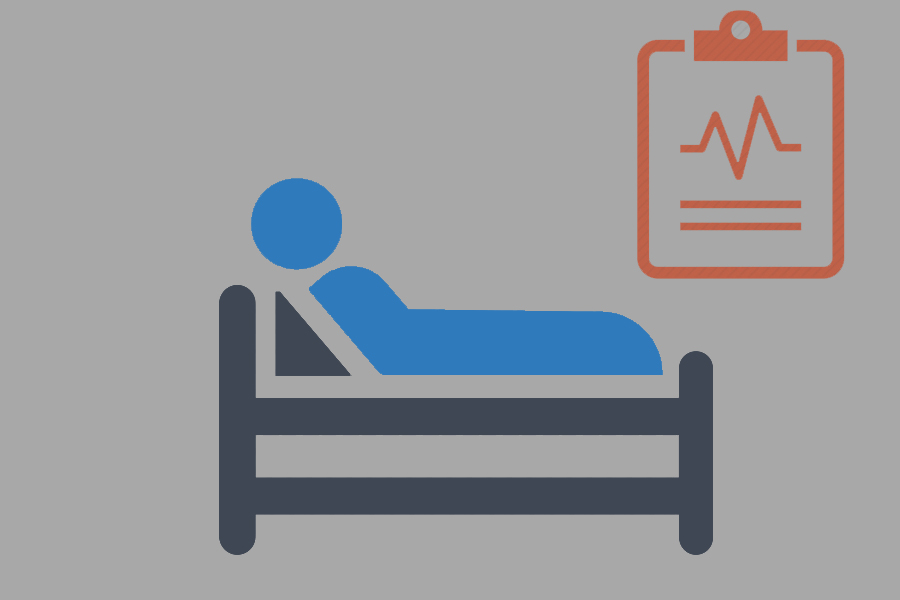
Published :
Updated :

Bangladesh's healthcare system is under immense strain due to chronic underfunding, weak regulation, and poor coordination, forcing citizens to bear 74 per cent of medical expenses out of pocket-- the highest globally.
At the Bangladesh Health Conclave 2025 on Saturday, experts and policymakers warned that without urgent reforms and stronger collaboration between the public and private sectors, access to quality healthcare will remain beyond the reach of millions.
They demanded a sharp increase in budget allocation, from less than 1 per cent of GDP at present to between 5 and 8 per cent, alongside regulatory reforms to restore public trust and strengthen service delivery.
The event organised by Bangla newspaper Bonik Barta under the theme "Better Healthcare Brighter Nation", brought together policymakers, researchers, healthcare providers, pharmaceutical leaders, and development partners.
Speaking virtually as the chief guest, Planning Adviser Dr Wahiduddin Mahmud said people's lack of confidence in the health system was driving many abroad for treatment at enormous cost. "The situation should have been reverse-we should have developed the capacity to attract people to Bangladesh for treatment," he said.
Highlighting manpower and resource crises, Dr Mahmud noted, "Although our country has built large infrastructure, there are still no doctors. In many cases, there are doctors but no nurses. Due to this shortage of skilled manpower, common people are being deprived of quality services."
He urged investors to build low-cost hospitals and clinics suited to the needs of ordinary citizens and stressed that coordination between public and private investment is essential for a quality health sector.
Professor Dr Md Sayedur Rahman, Special Assistant to the Ministry of Health and Family Welfare (State Minister rank), underscored the importance of effective yet limited regulation.
"Like the police and the army, the health sector also needs regulation. However, regulation should not turn into tyranny, nor should regulatory authorities be corrupt," he said. He revealed that until now, Bangladesh lacked a specific law governing the establishment of medical colleges, hospitals, and diagnostic centres. "From now on, all government and private institutions will follow a general law," he added.
Health Secretary Md Saidur Rahman stressed that the health ministry cannot serve 170 million people alone. With 73 per cent of services provided by private and NGO facilities, he called for unity rather than blame. He announced a 100-day action plan to operationalise 21 Government Outdoor Dispensaries in Dhaka and speed up pending licence approvals. He also admitted that preventive health awareness remains neglected: "Students achieve high academic results, but no one teaches them how to live a healthy life."
From the private sector, Tapan Chowdhury, former caretaker adviser and Square Group Director, highlighted the urgent need for stable policies and partnerships. "Pharmaceuticals and hospitals must work jointly with regulators and government to ensure access, affordability, and sustainability," he said.
Dr Md Abu Zafar, Director General of Health Services, painted a stark picture of overstretched hospitals: "In a 500-bed hospital, there may be 2,000 patients and 3,000 attendants, creating major obstacles to care." He admitted that manpower shortages, particularly in rural areas, make it "impossible to provide healthcare fully according to public demand".
BNP Standing Committee Member Amir Khasru Mahmud Chowdhury slammed excessive regulation, saying it only fuels corruption. "Unnecessary additional regulatory bodies have been established, blocking progress. Private hospitals and clinics should be given the opportunity to self-regulate. Where there is more control, there is more corruption," he said. He pledged that BNP would allocate more than 5 per cent of GDP to health, prioritising free primary and preventive care.
Jamaat-e-Islami Nayeb-e-Ameer Dr Syed Abdullah Mohammad Taher said the private sector must become service-oriented instead of being profit-driven. "For this, it is important to ensure quality and appropriate services. At the same time, entrepreneurs must play an active role in reducing the pressure of medical expenses," he said, urging 6-8 per cent of the national budget for healthcare.
LabAid Group Managing Director Dr A M Shamim noted that a negative attitude towards doctors had become a social "fashion," while reduced foreign aid was pressuring programmes like TB control. He said private hospitals must be made more people-friendly: "People need to have confidence in private healthcare. The quality is higher, even if there is negative campaigning about costs."
BRAC Executive Director Asif Saleh questioned why urban healthcare falls under local government instead of the health ministry, calling it a "structural flaw" unique to Bangladesh. He warned that without a master plan, funds risk being wasted: "There is no coordination among ministries, and the urban primary healthcare system collapses under pressure." He urged Bangladesh to learn from global models such as Thailand's coordinated primary care system.
Public health expert Dr Nizam Uddin Ahmed, CEO of National Telehealth Services, said non-communicable diseases cause 67 per cent of the 900,000 annual deaths in Bangladesh, while primary healthcare has collapsed. "We cannot just focus on infectious illnesses," he said. He pressed for higher domestic investment and confidence-building measures in local treatment, noting that fewer people are now going abroad due to restrictions-a shift that should be consolidated by improving quality.
The daylong event featured five panel discussions on regulations, specialised services, public health, and private sector reforms, moderated by Bonik Barta's Editor and Publisher Dewan Hanif Mahmud.
bdsmile@gmail.com


 For all latest news, follow The Financial Express Google News channel.
For all latest news, follow The Financial Express Google News channel.